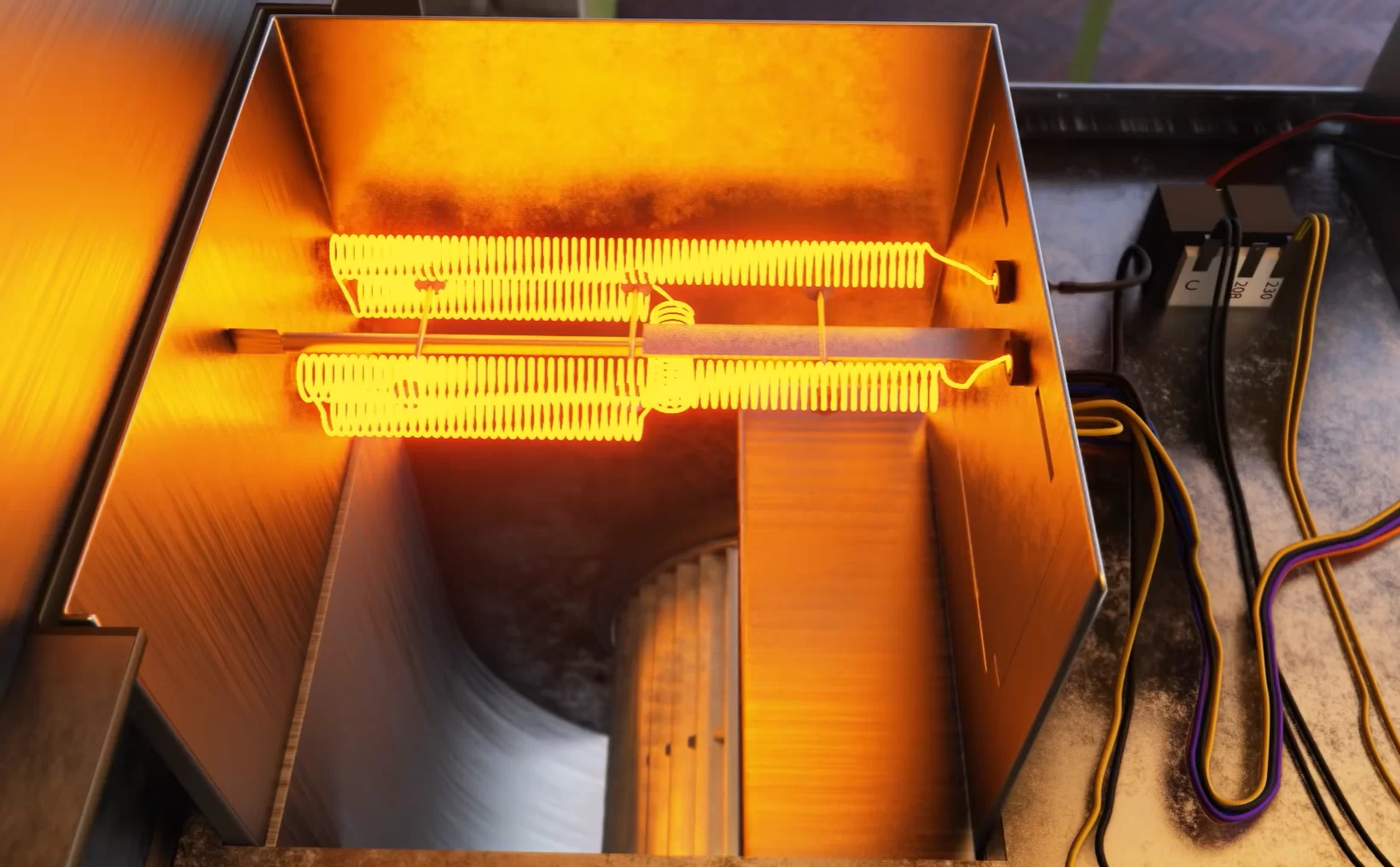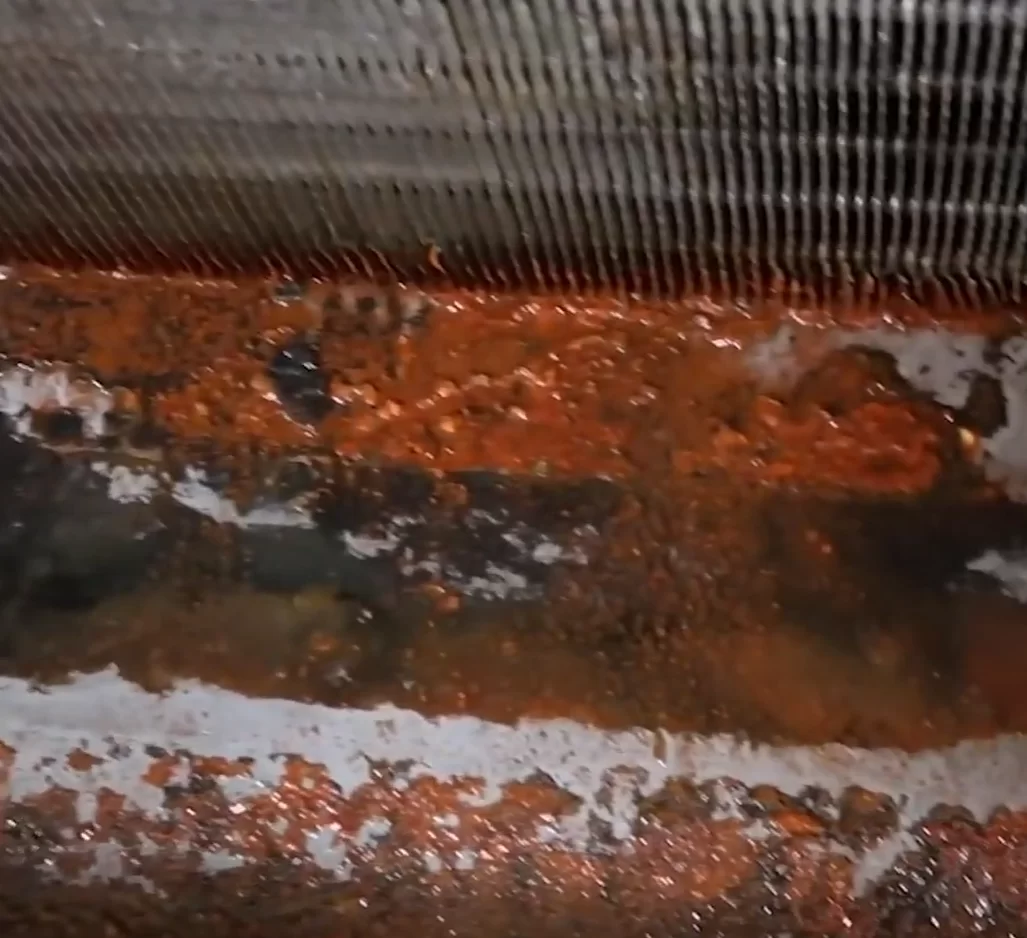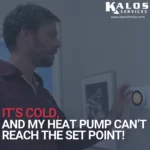If you have an electric heat pump, you may notice a burning smell when the heat comes on, especially if it’s during one of the first very cold days or nights this season. The most common odor is that of burning hair or dust. Any kind of burning smell can be concerning, but a heat pump that smells when the heat comes on can be especially so.
While any kind of burning smell is a cause for concern, the “burning dust” smell is nothing to worry about. It’s not something any of us wants, but your system isn’t in any danger. We’ll quickly break down what this unpleasant smell is and why it happens.
Electric Heat
When the heat comes on, you may smell something a bit like burning hair. That smell comes from the electric heat strips inside your heat pump. They’re located above the coil and blower in the compartment with the electrical wiring.

Most of the time, heat pumps can bring in enough heat from the outdoors that we really don’t need the electric heat. Electric heat isn’t very efficient, and heat pumps primarily rely on the much more efficient heat transfer process between the outdoors and indoors. However, when a heat pump struggles to maintain the set temperature or needs to go into defrost, the electric heat strips come on as a backup heat source to make sure you don’t get too cold.
Florida has a very long cooling season when we don’t use the electric heat at all. Dust collects on the strips when we don’t use them. Then, when the heat strips turn on and start heating up, that dust burns up on the surface. You get a burning smell and may even get a little bit of smoke. It’s unpleasant but not a cause for concern; it should pass.
Other Heat Pump Odors
While the burning hair or dust smell is normal for a heat pump that’s running the electric heat, there are other potential smells. You may also smell the following odors coming from your heat pump, which may indicate issues with its cleanliness, electrical system, or otherwise:
- Electrical burning smell
- Sulfur (rotten egg) smell
- Musty smell
- “Dirty sock” smell
Electrical burning has a distinct smell—like burning rubber or burning plastic. If you smell electrical burning at any point, call an electrician (or HVAC technician if you know it’s the HVAC system) ASAP. Compromised wires pose a fire risk, and motor issues can come with costly replacements if you don’t address the root cause quickly.
Sulfur or rotten egg smells are deeply concerning if you have gas-fired appliances, but they shouldn’t come from an electric heat pump since those use electricity, not gas. If you have a sulfur smell coming from your vents, the problem might be decomposition from bacteria in the unit or even dead animals in the attic or ductwork. An HVAC technician can come out and check and clean your system if the source of the odor is from within.
A musty or dirty sock smell may indicate an issue with microbial growth in or around your indoor coil. These microbes may aggravate conditions like asthma or cause sludge to form in the drain, leading to backups. The picture below shows bacterial growth in a refrigerated case, which has a coil and a drain pan, just like the heat pumps in our homes.

The best solution is for a technician to come and do a thorough cleaning.
You’re likely to experience an unpleasant odor when the electric heat strips first kick on during the defrost cycle or frigid temperatures. Our technicians are trained to burn the heat strips off during fall maintenance procedures so that you will have less of a burning smell when they first come on. However, if you smell an odor like that of burning dust or hair, it’s unlikely to require a technician and should soon pass.
However, any smells that may indicate bacteria or mildew should be addressed quickly, and electrical burning should be addressed immediately. If you have any questions about your heat pump or need to call an HVAC technician in the Central Florida area, you can call or text us 24/7 at (352)-243-7099 to speak with someone. Our customer service reps will be happy to give you some basic information or set up an appointment with a technician.




